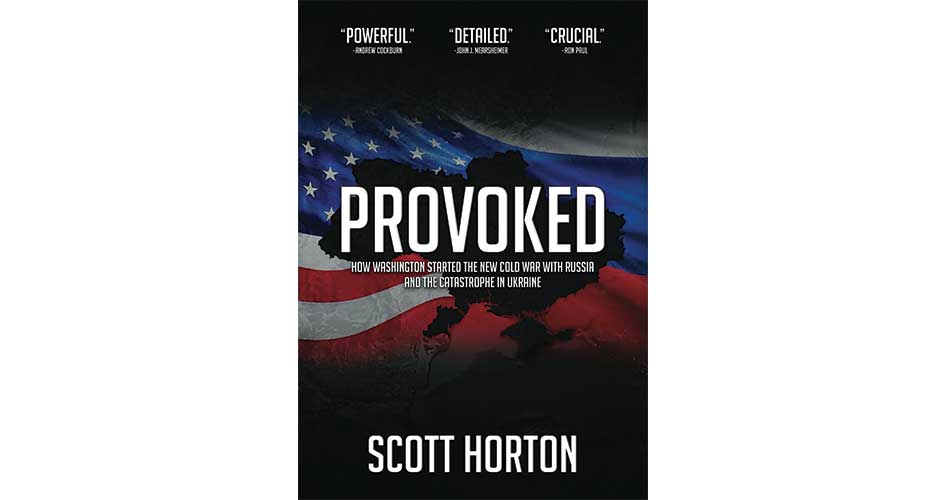Foreign-policy Failure
Scott Horton’s new book Provoked: How Washington Started the New Cold War With Russia and the Catastrophe in Ukraine offers a compelling critique of U.S. foreign policy and its role in the events leading up to the current war between Russia and Ukraine. The book challenges the dominant narrative promoted by Western media and the political Establishment, which has labeled Russia’s 2022 invasion as an “unprovoked attack” on a peaceful, democratic nation. Horton argues that this depiction is misleading, and he traces a series of U.S. actions that contributed to the escalation.
Although he believes that Russia had alternatives to war in defending its interests, Horton argues that the United States bears significant responsibility for creating the conditions that led to the conflict. He begins by examining Washington’s post-Cold War policies, driven by neoconservative ambitions to maintain and expand American global hegemony. Instead of “going home” and embracing a vision of the United States as a “limited republic,” policymakers pursued an imperial agenda. A central pillar of this strategy was NATO’s eastward expansion, a process that Russia repeatedly warned would be seen as a direct threat to its security.
One of the book’s greatest strengths is its thorough documentation of U.S. policy decisions, showing how every administration from George H.W. Bush to Joe Biden contributed to this expansionist strategy. Horton illustrates how George H.W. Bush’s promise to Mikhail Gorbachev that NATO would not expand “one inch eastward” was quickly abandoned. Under Bill Clinton, NATO’s membership grew to include Poland, Hungary, and the Czech Republic, setting a precedent for further eastward expansion. George W. Bush’s administration took it further, supporting NATO membership for Georgia and Ukraine — moves that Russia’s leadership viewed as openly hostile. Barack Obama’s support for “color revolutions” and his administration’s role in the 2014 Maidan uprising in Ukraine further exacerbated tensions. Horton highlights how this effort facilitated the rehabilitation of Ukrainian ultranationalism, with militant groups such as the Azov Battalion rising to prominence, adding a dangerous new dimension to the crisis.
JBS Member or ShopJBS.org Customer?
Sign in with your ShopJBS.org account username and password or use that login to subscribe.

 Subscribe Now
Subscribe Now
- 24 Issues Per Year
- Digital Edition Access
- Exclusive Subscriber Content
- Audio provided for all articles
- Unlimited access to past issues
- Cancel anytime.
- Renews automatically

 Subscribe Now
Subscribe Now
- 24 Issues Per Year
- Print edition delivery (USA)
*Available Outside USA - Digital Edition Access
- Exclusive Subscriber Content
- Audio provided for all articles
- Unlimited access to past issues
- Cancel anytime.
- Renews automatically

